
working @IJ, but speaking for myself / property rights / financial privacy / the right to build / get off my lawn
3 subscribers
How to get URL link on X (Twitter) App

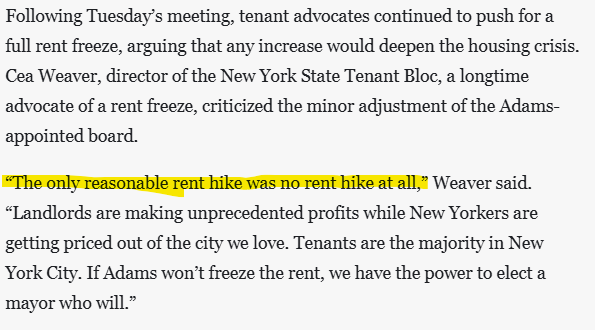
https://twitter.com/DavidKlion/status/2008734293569437840The scheme has three parts. The first is to force apartment buildings into distress through regulation that forces landlords to rent at unsustainably low rents.

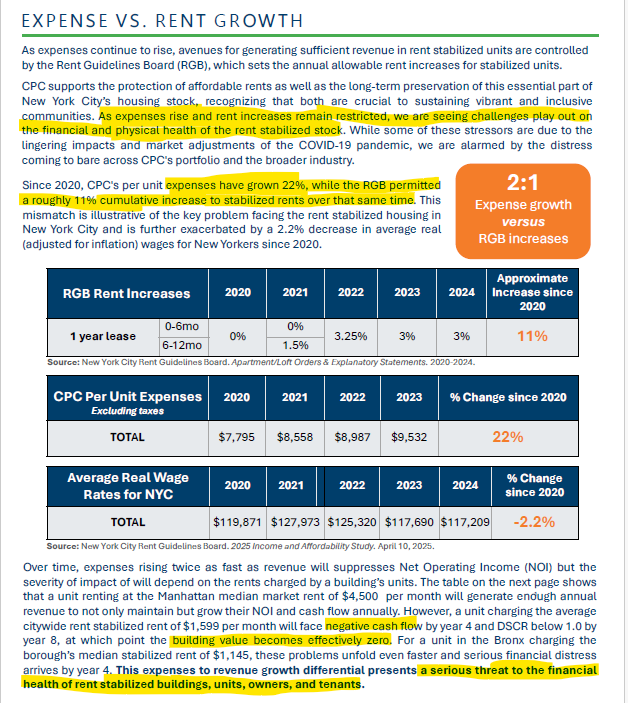
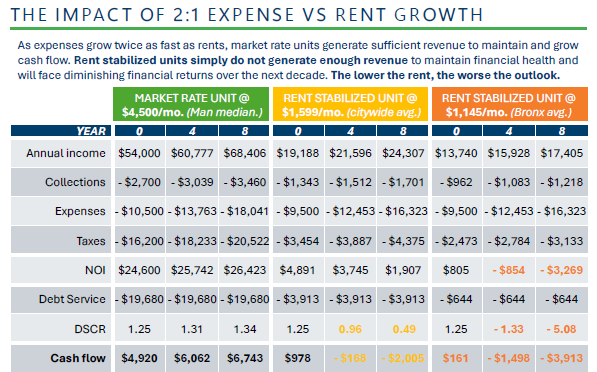
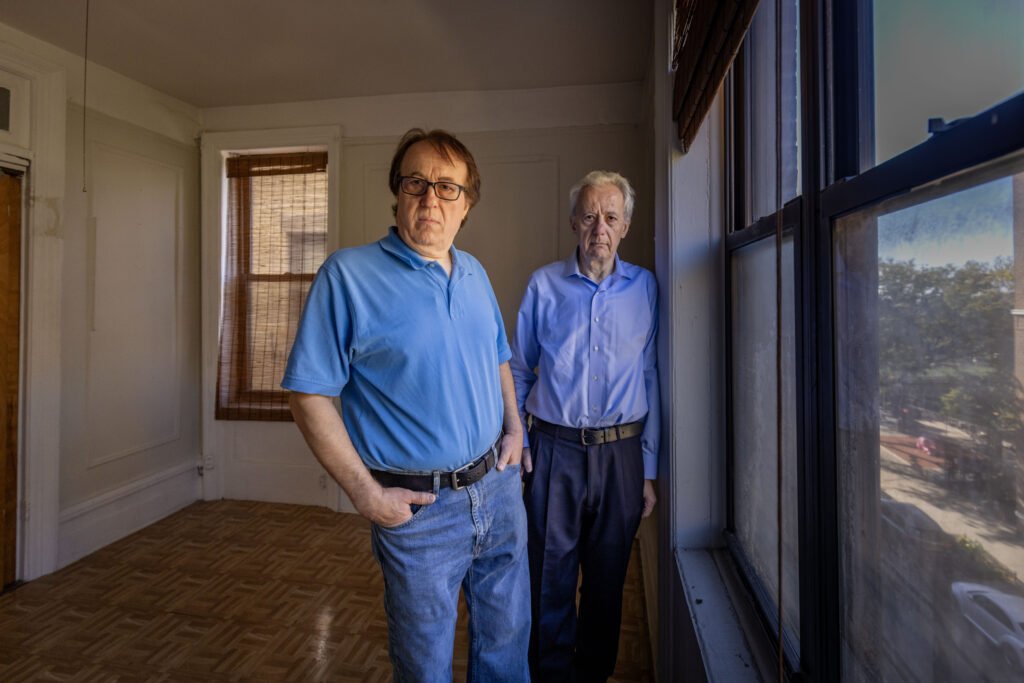
https://x.com/FreeRangeLawyer/status/1760066820126498915There are a few things that make our approach unique, but perhaps the biggest is that we narrowly focused our claims on New York's regulation of vacant apartments--apartments that are sitting vacant because the legal rent is so low it doesn't make sense to put them on the market.


 Andy's gas station is one of hundreds of businesses along the border that has been ordered to report cash transactions over just $200 to the federal government. It's an unprecedented financial surveillance program.
Andy's gas station is one of hundreds of businesses along the border that has been ordered to report cash transactions over just $200 to the federal government. It's an unprecedented financial surveillance program.


 Here's the background: In 1974, the Supreme Court upheld a (then-new) law that forced banks to report over-$10,000 transactions to the federal government.
Here's the background: In 1974, the Supreme Court upheld a (then-new) law that forced banks to report over-$10,000 transactions to the federal government. 


 Jeni's fight for her missing $2,000 is another chapter in the story of U.S. Private Vaults, a safe deposit box facility in Beverly Hills that the FBI raided in March 2021. @IJ challenged the raid, and, earlier this year, the Ninth Circuit held that the raid violated the Fourth Amendment.
Jeni's fight for her missing $2,000 is another chapter in the story of U.S. Private Vaults, a safe deposit box facility in Beverly Hills that the FBI raided in March 2021. @IJ challenged the raid, and, earlier this year, the Ninth Circuit held that the raid violated the Fourth Amendment. https://x.com/FreeRangeLawyer/status/1732134813715353913?s=20

 Justice Thomas says this particular case wasn't granted because the petitioners didn't do a good enough job framing the issues. (Note he uses the word "our," signaling this isn't just his idiosyncratic view.) He says it wasn't clear exactly what regulations were at issue, who they affected, or how. But that's something that's easily fixed in a future case.
Justice Thomas says this particular case wasn't granted because the petitioners didn't do a good enough job framing the issues. (Note he uses the word "our," signaling this isn't just his idiosyncratic view.) He says it wasn't clear exactly what regulations were at issue, who they affected, or how. But that's something that's easily fixed in a future case.

https://twitter.com/FreeRangeLawyer/status/1749911997104136292The decision has three parts, and each part has important implications for the Fourth Amendment.

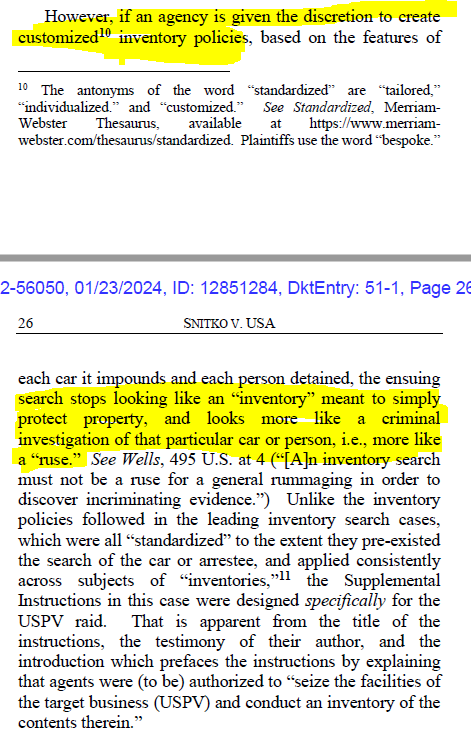



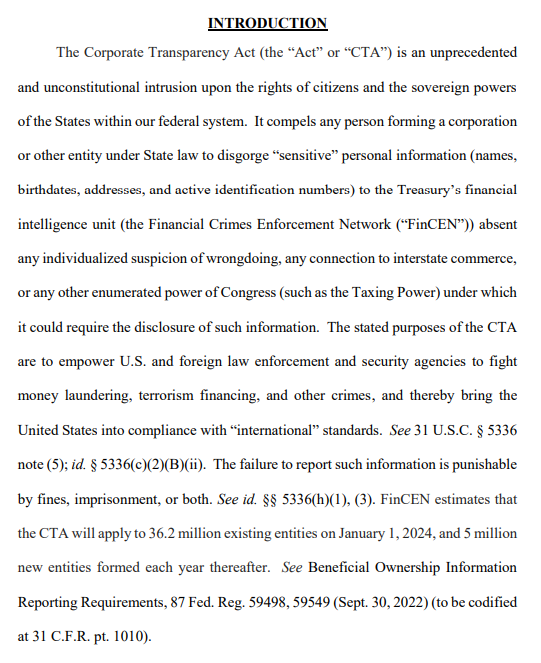 The effect of the regulation is to create a new database that can be mined by law enforcement for information about small businesses.
The effect of the regulation is to create a new database that can be mined by law enforcement for information about small businesses. 



 The FBI did all that pursuant to a warrant, but, critically, the warrant specifically said that it did not "authorize a criminal search or seizure of the safety deposit boxes." That was an important limitation: The FBI had reason to think that USPV, the business, had violated the law, but the FBI had no basis for any individualized probable cause as to any of the boxholders.
The FBI did all that pursuant to a warrant, but, critically, the warrant specifically said that it did not "authorize a criminal search or seizure of the safety deposit boxes." That was an important limitation: The FBI had reason to think that USPV, the business, had violated the law, but the FBI had no basis for any individualized probable cause as to any of the boxholders.


 @IJ filed the case on behalf of Jim and Cliff Courtney, who live and operate businesses in a town on Lake Chelan (in Washington) accessible only by boat or chartered plane. The Courtneys want to transport people to the town by boat, but can't without a license.
@IJ filed the case on behalf of Jim and Cliff Courtney, who live and operate businesses in a town on Lake Chelan (in Washington) accessible only by boat or chartered plane. The Courtneys want to transport people to the town by boat, but can't without a license. 
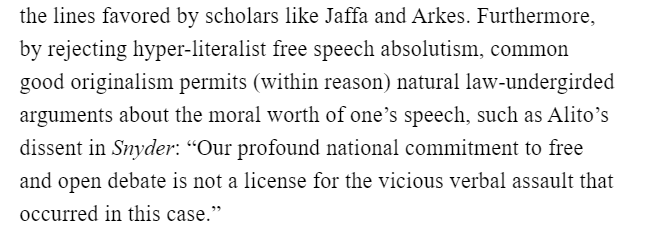





 First, it's mind-blowing that the NYT published this essay back in 1970, and it shows how much the paper has changed in 50 years. That's in part for ideological reasons, but it's also just because the essay is really *long.* Bring back long-form essays!
First, it's mind-blowing that the NYT published this essay back in 1970, and it shows how much the paper has changed in 50 years. That's in part for ideological reasons, but it's also just because the essay is really *long.* Bring back long-form essays!
https://twitter.com/Clipart1994bot/status/1260150500072308737This one is too on point.
https://twitter.com/Clipart1994bot/status/1260075005607645185?s=20



https://twitter.com/sheldongilbert/status/1012056323989663745My favorite thing about clerking with AMK was the broad range of his interests. At my interview, when he learned I studied anthropology in undergrad, he recommended that I read an obscure collection of essays on the blending of British and Indian culture. amazon.com/Way-We-Were-An…